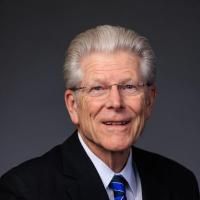Understanding the Complex Relationship between Critical Thinking and Science Reasoning among Undergraduate Thesis Writers.
Date
2018-01
Editors
Journal Title
Journal ISSN
Volume Title
Repository Usage Stats
views
downloads
Citation Stats
Attention Stats
Abstract
Developing critical-thinking and scientific reasoning skills are core learning objectives of science education, but little empirical evidence exists regarding the interrelationships between these constructs. Writing effectively fosters students' development of these constructs, and it offers a unique window into studying how they relate. In this study of undergraduate thesis writing in biology at two universities, we examine how scientific reasoning exhibited in writing (assessed using the Biology Thesis Assessment Protocol) relates to general and specific critical-thinking skills (assessed using the California Critical Thinking Skills Test), and we consider implications for instruction. We find that scientific reasoning in writing is strongly related to inference, while other aspects of science reasoning that emerge in writing (epistemological considerations, writing conventions, etc.) are not significantly related to critical-thinking skills. Science reasoning in writing is not merely a proxy for critical thinking. In linking features of students' writing to their critical-thinking skills, this study 1) provides a bridge to prior work suggesting that engagement in science writing enhances critical thinking and 2) serves as a foundational step for subsequently determining whether instruction focused explicitly on developing critical-thinking skills (particularly inference) can actually improve students' scientific reasoning in their writing.
Type
Department
Description
Provenance
Subjects
Citation
Permalink
Published Version (Please cite this version)
Publication Info
Dowd, Jason E, Robert J Thompson, Leslie A Schiff and Julie A Reynolds (2018). Understanding the Complex Relationship between Critical Thinking and Science Reasoning among Undergraduate Thesis Writers. CBE life sciences education, 17(1). pp. ar4–ar4. 10.1187/cbe.17-03-0052 Retrieved from https://hdl.handle.net/10161/20431.
This is constructed from limited available data and may be imprecise. To cite this article, please review & use the official citation provided by the journal.
Collections
Scholars@Duke

Robert J. Thompson
My research and teaching interests include how biological and psychosocial processes act together in human development and learning. One area of focus has been on the adaptation of children and their families to developmental problems and chronic illnesses, including sickle cell disease and cystic fibrosis. Another area of focus is enhancing undergraduate education through scholarship on teaching and learning and fostering the development of empathy and identity.

Julie Reynolds
Julie Reynolds has a Ph.D. in biology but, through a series of unexpected events, became an expert in writing pedagogies. She spent 5 years learning to teach writing as a postdoctoral fellow in Duke University’s first-year writing program before transitioning to the biology department where she has taught science writing and writing-intensive courses to thousands of undergraduates and graduate students. With over a decade of funding from the National Science Foundation, her disciplinary-based education research has focused on how writing assignments can promote deep, conceptual learning, especially in large science courses. Dr. Reynolds is also a writing coach and has helped hundreds of scientists across the country to increase their productivity while reducing stress associated with writing.
Unless otherwise indicated, scholarly articles published by Duke faculty members are made available here with a CC-BY-NC (Creative Commons Attribution Non-Commercial) license, as enabled by the Duke Open Access Policy. If you wish to use the materials in ways not already permitted under CC-BY-NC, please consult the copyright owner. Other materials are made available here through the author’s grant of a non-exclusive license to make their work openly accessible.
